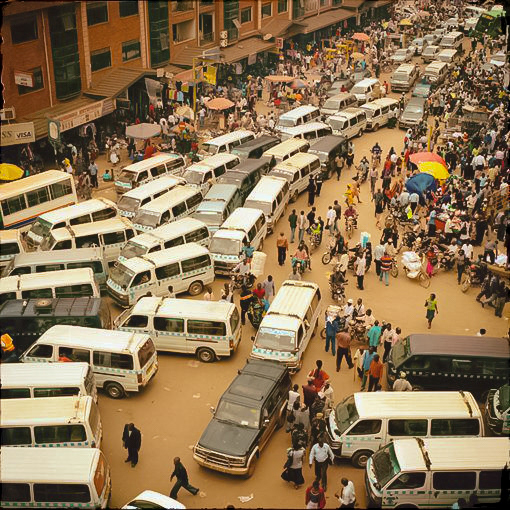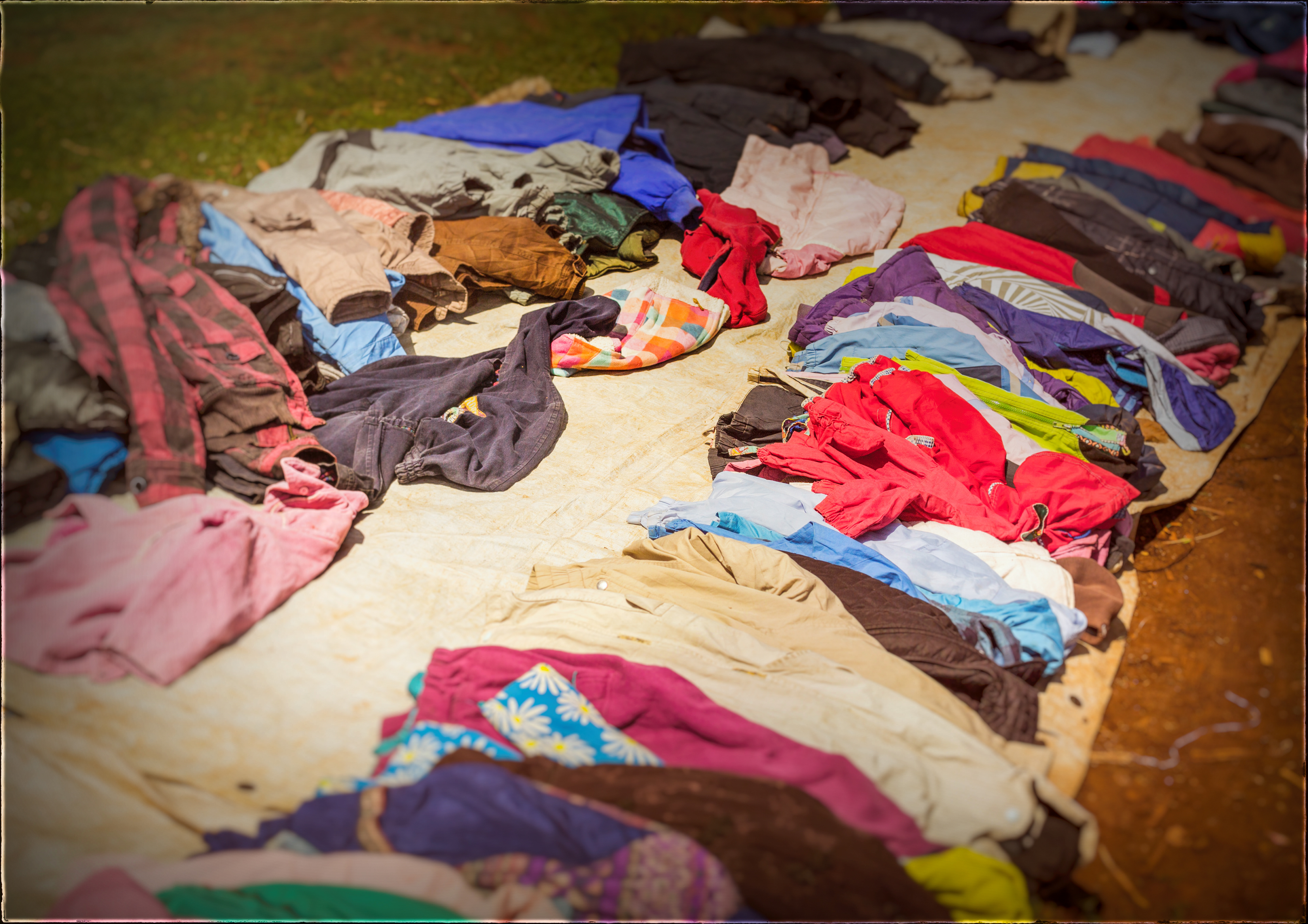Two businesses are better than one
July 2014
- KIVA FELLOWS BLOG -
Last week I travelled to Nakuru, a town to the north-west of Nairobi in Kenya's Rift Valley Province, about three hours away by matatu. Matatus are the predominant mode of transport in Kenya and while they lack a few comforts - leg room, air conditioning, suspension, and any limit on the number of people that will attempt to fit inside one simultaneously - they have the benefits of being cheap, efficient and reliable, and handle Kenya's potholed roads reasonably well.
The reason for the journey was to visit one of Kiva's borrowers, Jackline, and her clothes selling business, although making it to Nakuru was only half the story. After leaving Nairobi around 7am and making the three hour journey to Nakuru, we disembarked and fought through the crowds to find the next matatu and travel onwards to Molo, another hour and a half away. With each leg of the journey we were heading deeper into rural Kenya, but we had one more change to make before reaching Jackline. In Molo we finally left the matatus behind for what I thought was an upgrade; a taxi service with a friendly driver and a regular car. What I'd failed to appreciate is that the taxi wasn't just for us, and only leaves once it's full. Unfortunately the definition of 'full' in Molo is a minimum of seven people to a car; 3 in the front, 4 in the back, and more in the boot if it's not already laden with assorted sacks of clothes, crops, and general supplies.
After another forty-five minute journey I extracted myself from the taxi, tried to regain some feeling in my limbs, and found myself in Keringet; a small one-road village surrounded on all sides by Mau Forest, the largest forest in East Africa.
By the side of the one road in Keringet is where I found Jackline who had taken out a loan with SMEP Microfinance Bank, a partner of Kiva, to buy stock for her young thriving clothing business. She smiled broadly as we approached and was eager to tell me about her new business and the impact that access to financial services was having on the life of her and her family.
Despite already running a farm and having started selling clothes less than a year ago in addition to taking care of her two daughters at home, Jackline is now able to make around 1,000 Kenyan shillings a day, or about $11. While that might not sound like much, in reality it's almost four times the average salary in Kenya, and represents a significant improvement in Jackline's quality of life.
I had brought with me a printout of Jackline's profile from Kiva.org, and she listened excitedly as I explained that the small thumbnail images at the bottom of the page were pictures of the people who had read her story and had wanted to fund her loan. It was great to make the personal connection and for Jackline to appreciate that people in the US, Europe, and elsewhere were invested in the growth and success of her business.
Half an hour later and our meeting was over; I thanked Jackline for her time and her hospitality, and we left to search for another overflowing taxi to begin the return journey. Although the meeting was relatively brief, it brought home to me the way our world is changing. At no previous point in history would it have been possible to imagine a scenario where a guy from England could meet with a woman in a village in rural Kenya, brought together by an organisation conceived in Uganda and built in the US, to discuss the growth of a business supported by individuals in the Netherlands, Japan and Australia. It's a privilege to be that guy from England.

